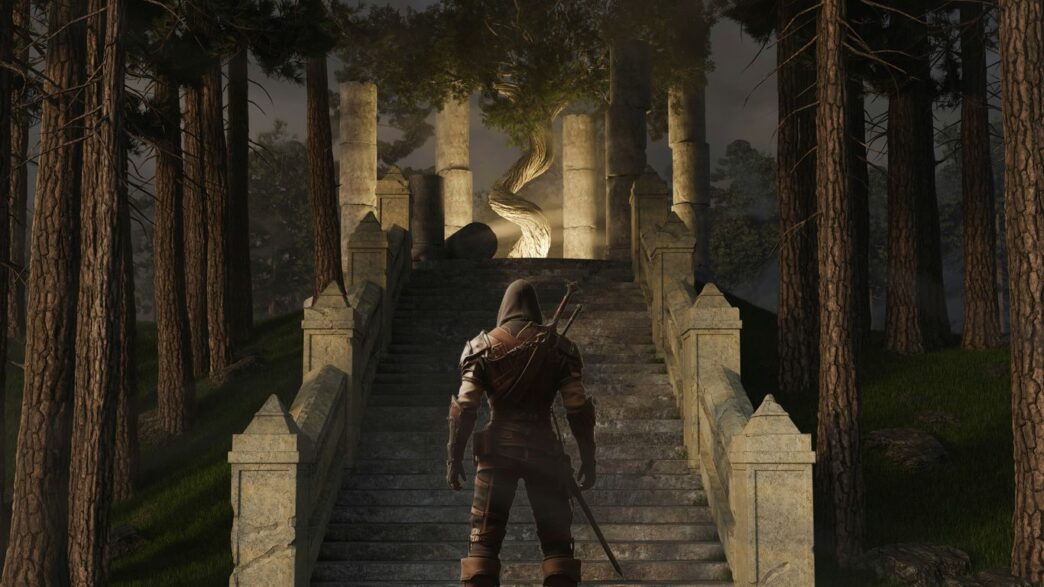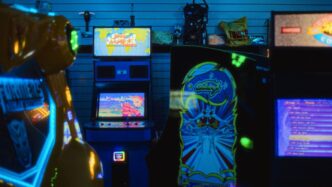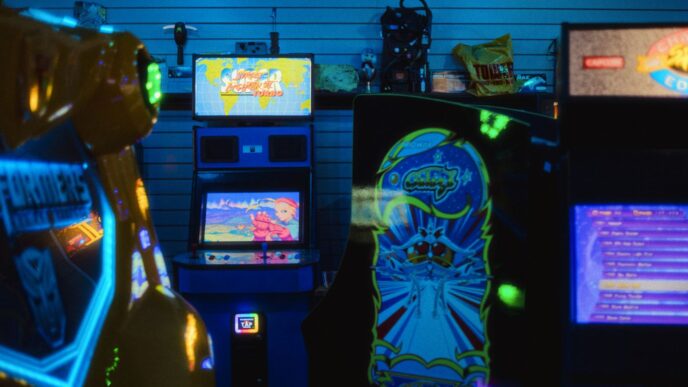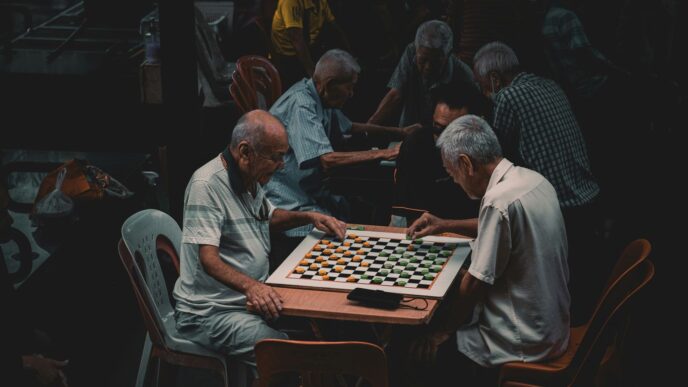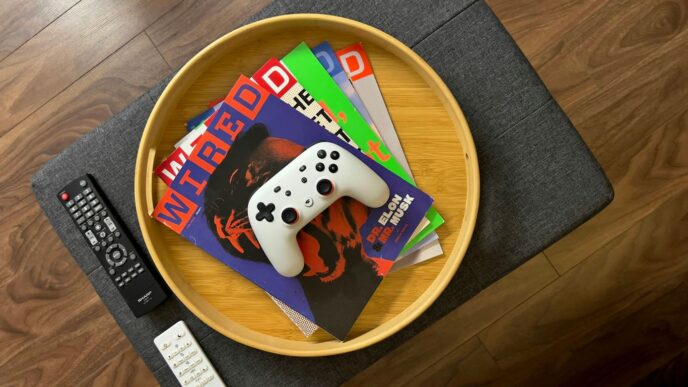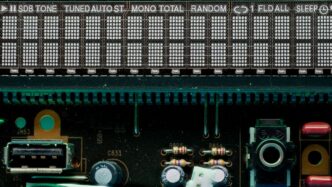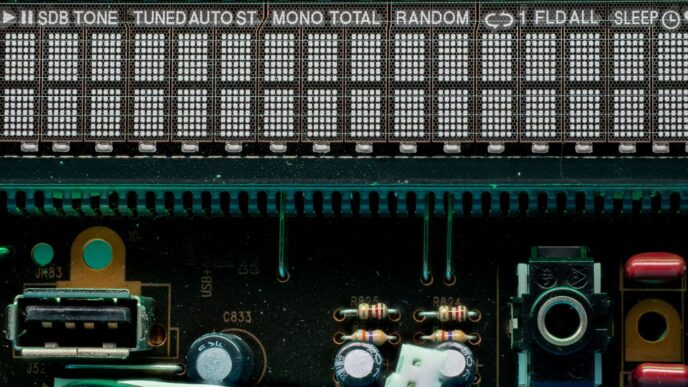Jumping into the world of atelier games can be a bit much at first, right? It’s not just about mashing buttons; there’s a whole lot of crafting and planning involved. Whether you’re new to this series or just looking to get better, understanding how things work is key. This guide is here to break down the basics of these alchemical adventures, making sure you’re ready to tackle whatever comes your way.
Key Takeaways
- Getting the right characters early on, maybe by rerolling, makes the whole experience smoother.
- Focus on progressing the main story to unlock more game features and resources.
- Synthesis is super important for making your characters and gear stronger.
- Paying attention to character roles and how they work together in battles is a good idea.
- Don’t forget about Memoria; upgrading them can really help boost your party’s power.
Embarking on Your Alchemical Journey
So, you’re diving into the Atelier series for the first time? It’s a pretty unique kind of game, not like your typical hack-and-slash RPGs. Instead of just fighting your way through, you’ll be spending a lot of time gathering stuff and mixing it all together. It can feel a bit much at first, honestly, but once you get the hang of it, it’s really rewarding. Think of it like learning to cook – you need the right ingredients and the right steps to make something great.
Understanding Core Atelier Mechanics
The heart of any Atelier game is, well, alchemy. You’ll be collecting all sorts of plants, minerals, monster bits, and who knows what else from the environment. Then, you take these back to your workshop and use a system called synthesis to create new items. This could be anything from healing potions to powerful weapons or armor. It’s not just about making things, though; the quality of your ingredients and how you combine them really matters. You’ll also be managing your party, exploring different areas, and following a story, but the synthesis is always front and center. It’s a game that rewards patience and planning.
The Importance of Synthesis
Seriously, synthesis is everything. You can’t really progress without it. Need a better sword? Synthesize it. Need to heal your party? Synthesize some potions. Even advancing the story often involves crafting a specific item. Early on, you’ll find that crafting new items, even if they seem minor, gives you skill points. It’s way more effective than just grinding out battles for experience. So, get used to spending time at the alchemy cauldron; it’s your main tool for getting stronger and moving forward. Don’t be afraid to experiment with different materials, too; you might discover some surprisingly good combinations. For a look at how story progression ties into gameplay, you might find this guide helpful for Atelier Firis.
Navigating Early Game Challenges
When you first start, it can feel a bit slow. You’re probably figuring out the gathering spots, learning what materials do what, and maybe struggling with a tough enemy or two. A good strategy is to focus on making basic healing items and gear that boosts your defense. Don’t worry too much about making the absolute best stuff right away. Just focus on making something useful. Also, keep an eye out for any quests that give you specific items to synthesize; these are usually good practice and help you learn the system. If you’re finding combat tough, remember that better gear from synthesis is often the answer, rather than just trying to brute force your way through. It’s all about building that foundation.
Mastering the Art of Synthesis
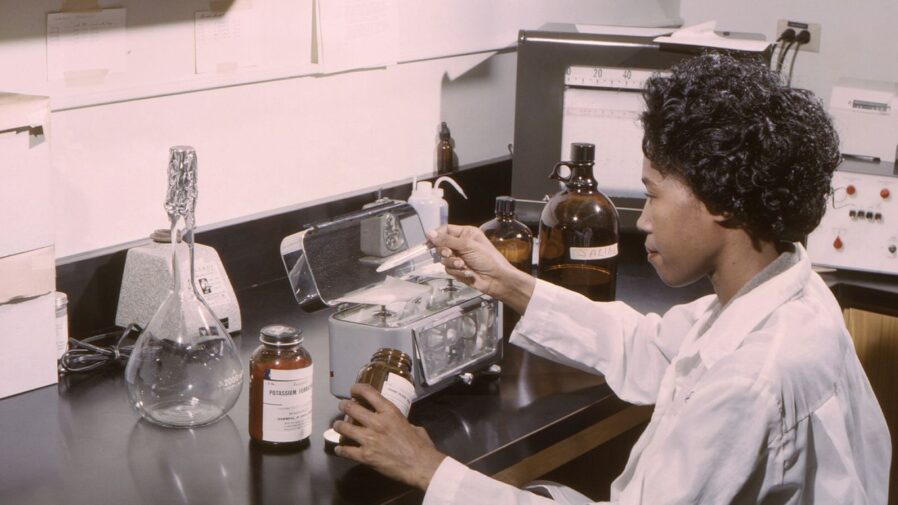
Alright, so you’ve gathered some stuff, maybe a bit of everything. Now what? Well, in the Atelier games, that pile of random ingredients is your ticket to getting stronger. It’s not just about fighting; it’s about crafting. Seriously, spending time in your workshop after a good gathering trip is super important. You’ll make new gear, upgrade what you have, and even get skill points from it. It sounds a bit odd, but crafting early on actually helps more than just fighting stuff.
Gathering Essential Materials
So, you need to actually go out and get things. Think of it like grocery shopping, but for alchemy. Different places have different stuff, obviously. Forests usually have plants and wood, while rivers might give you water and some rocks. The key is to know what you need before you go out. If you’re trying to make a specific potion, figure out where its ingredients grow. It saves a lot of running around. Also, keep an eye out for those fast travel points; they make getting back to your favorite gathering spots way easier. You can find some great tips for picking out games that run well on less powerful machines, which is handy if your laptop is more for work than play. laptop gaming tips
Crafting for Progression
Once you have your materials, it’s time to actually make things. Don’t just craft the first thing you see. Look at the recipes. Some items have special conditions you can meet during crafting. Fulfilling these can give you bonuses, like making the item work better or giving it more range. It’s like a little puzzle. Also, materials have something called ‘Resonance’ and ‘Mana’ levels. Higher resonance usually means a better final product, and mana levels can be boosted by hitting certain star patterns on the material during synthesis. It takes a bit of practice to get the hang of it, but it makes a big difference.
Here’s a quick rundown on what to look for:
- Resonance: Higher is generally better for overall quality.
- Mana Stars: Try to activate all the stars you see on a material. This boosts the item’s mana level.
- Special Conditions: Always check these! They can add extra effects or improve stats.
Maximizing Resonance and Mana
Getting the most out of your crafting involves paying attention to those Resonance and Mana values. Think of Resonance as the ‘quality’ score of your ingredients. The higher the combined Resonance of the materials you use, the better the final item will be. Mana is a bit different; it’s about activating specific points on the material during the synthesis process. You’ll see little star patterns, and if you hit them all, your item gets a significant boost. It’s a bit like a mini-game within the crafting itself. Some materials are better for boosting damage, while others improve the item’s general quality. It’s worth experimenting to see what works best for the item you’re trying to create. Don’t forget about Neutralizers, either; they’re pretty useful for bumping up Resonance and Mana. They’re not too hard to make, so keep a stock of them.
Building a Powerful Alchemist Team
So, you’ve got your alchemical workshop humming and your gathering routes mapped out. That’s great! But to really make progress in this world, you need a solid team backing you up. It’s not just about having a bunch of strong characters; it’s about putting the right people together.
Strategic Rerolling for Top-Tier Allies
When you first start out, you’ll get a chance to pull some characters. Don’t just settle for the first few you get! Think of this as your first big alchemical experiment – you want the best ingredients. Aiming for high-tier characters early on can make a huge difference in how smoothly your adventure goes. It might take a few tries, but rerolling to get a strong defender or a good healer is totally worth the effort. You can usually find tier lists online that show which characters are considered the best right now. Getting a good start with your pulls means you’ll have an easier time with early quests and gathering materials.
Understanding Character Roles
Just like in any good team, each alchemist has a job to do. You’ll want a mix of different roles to handle various situations. Generally, you’ll want:
- Defenders: These characters are tough and can take a lot of hits, protecting your more fragile alchemists.
- Attackers: Your main damage dealers. They focus on taking down enemies quickly.
- Support: These alchemists can heal your team, buff your allies, or debuff your enemies, making combat much easier.
Having a balanced team means you can adapt to different enemy types and combat challenges. For example, a team with one Defender, two Attackers, and two Supporters can be a really effective setup Atelier Resleriana team formations.
Enhancing Party Strength Through Research
Beyond just pulling characters, there are other ways to make your team stronger. Don’t forget about the research options available. "Combat Research" and "Alchemy Research" can help you create new gear and weapons, which directly boosts your party’s stats. It’s also a good idea to focus on upgrading your Memoria, as these accessories can provide significant stat boosts and special effects. Sometimes, you might hit a tough spot in the story. Instead of getting frustrated, take some time to train your characters, upgrade their skills, and craft better equipment. This preparation is key to overcoming those difficult challenges.
Conquering the Battlefield
So, you’ve got your alchemists assembled and ready to go. Now what? It’s time to actually use them in fights! While the game might let you auto-battle through some of the early stuff, don’t get too used to that. When things get tougher, you’ll really need to pay attention to what you’re doing.
Strategic Combat and Skill Utilization
Every character has their own set of skills, and knowing when to use them is key. Some skills are great for hitting multiple enemies at once, while others are better for taking down a single, tough foe. You also have skills that can buff your allies or debuff your enemies. Paying attention to enemy weaknesses and resistances can make a huge difference in how quickly you win a fight. Don’t just mash the attack button; think about which skill will be most effective in the current situation. It might take a few tries to get the hang of it, but it’s worth it.
Unlocking Combat Potential with Memoria
Memoria are like special cards or accessories that give your characters extra boosts or new abilities. You get them by playing the game and completing certain tasks. Some Memoria might increase your attack power, while others could give you a special skill to use in battle. It’s a good idea to experiment with different Memoria combinations to see what works best for your team. Getting specific Memoria, like Ryza’s SSR Memoria from advanced missions, can really give your party a significant edge.
Leveraging Character Synergies
Your alchemists don’t fight alone; they work as a team. Some characters might have skills that work really well together. For example, one character might apply a status effect that makes enemies take more damage from a certain type of attack, and then another character can exploit that weakness. Look at the skills your characters have and see if you can find any combinations that make them stronger when they fight together. Building a team where characters support each other is much more effective than just picking the characters with the highest individual stats.
Unlocking the World’s Secrets
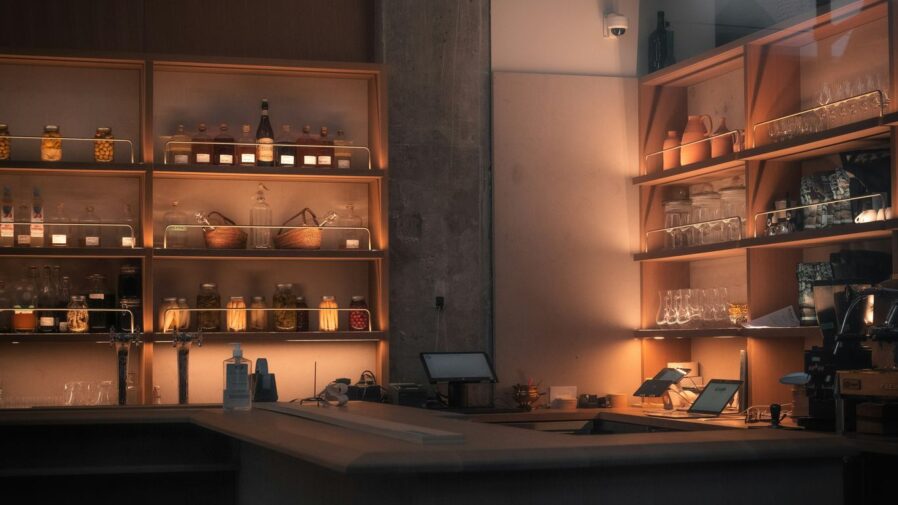
So, you’ve got your alchemist team sorted and you’re ready to really get into the game. The world of Atelier is pretty big, and figuring out where to go and what to do can feel a bit much at first. But don’t worry, it’s mostly about following the story and making sure you’re prepared.
The Significance of Story Progression
Pushing through the main story is actually super important. It’s not just about seeing what happens next, though the stories are usually pretty good. Each chapter you clear opens up new stuff. Think of it like unlocking new areas on a map, but for game features. You’ll get access to more quests, find new materials you couldn’t get before, and unlock things like the Glow Board or special research options. It’s really the main way the game introduces you to everything it has to offer.
Here’s a quick look at what you can expect as you advance:
- Chapter 1-6: Get your first new recipes.
- Chapter 1-7: More quests become available.
- Chapter 1-13: The Glow Board and Gem system is unlocked.
- Chapter 1-20: Peace Quests start, which are good for character awakenings.
- Chapter 1-30: Dungeons open up, giving you access to rare crafting stuff.
- Chapter 2-2: Research options expand.
- Chapter 2-26: Secret Quests are revealed.
Seriously, aim to get to Chapter 2-63 as soon as you can. It really opens up a lot of the game’s systems and challenges.
Exploring and Utilizing Fast Travel
When you’re out gathering materials, you’ll notice these little icons on your map that look like glowing crystals or something similar. These are fast travel points. Make it a habit to activate them whenever you see one. It might not seem like a big deal when you’re just starting out, but trust me, as the map gets bigger and you have to go back and forth for ingredients, these points save you a ton of time. It means less time spent just running around and more time actually crafting or fighting.
Discovering Region-Specific Resources
Different areas in the game have different kinds of stuff you can pick up. Forests usually have wood and plants, while rocky areas or riverbeds might give you minerals and water. If you need a specific ingredient for a recipe, it’s a good idea to check which region is known for that type of resource. This way, you’re not wasting time searching in the wrong places. For example, if you need a lot of ‘Sunpetal’ for a healing item, you’ll probably find more of it in grassy fields than in a dark cave. Planning your gathering trips based on what you need makes the whole process much smoother.
Character Progression and Enhancement
So, you’ve got your alchemist team assembled, but how do you make them actually good at what they do? It’s not just about having the right people; it’s about making them stronger. Think of it like upgrading your tools – the better they are, the better your potions and your chances in a fight.
Leveling Up Your Alchemists
Getting your characters to level up is pretty straightforward. You’ll gain experience points (EXP) from doing pretty much anything, but especially from completing training quests. These quests are usually found in a place called the "Star’s Cocoon" or similar areas. Besides EXP, you often get other useful stuff like power-up items and money. The more you train, the better your characters become. It’s a steady climb, but every level makes a difference.
Unlocking Character Level Caps
Now, here’s a bit of a hurdle. Characters can’t just keep leveling up forever. They hit a level cap, and you’ll need to do something specific to break through it. Usually, this involves progressing through the main story – like clearing a certain chapter. Once that’s done, a new feature, often called the "Grow Board" or something similar, becomes available. You’ll find it in the character menu. To actually raise the cap, you’ll need to spend specific items, like "Glowing Orbs" and money, to unlock panels on this board. Each unlocked panel not only lets your character level up higher but also gives them stat boosts and can even improve their skills.
The Role of Memoria in Boosting Stats
Memoria are like special accessories or cards that give your characters extra power. They aren’t just for show; upgrading these Memoria is a big deal for boosting your party’s overall strength. Think of them as giving your alchemists special abilities or just making them hit harder and survive longer. Some of the best Memoria are rewards for completing tougher challenges or advanced missions. Don’t ignore them; investing time in getting and upgrading good Memoria can make a huge difference when you hit those tough story quests or boss fights.
Wrapping Up Your Alchemical Journey
So, you’ve journeyed through the basics of gathering, crafting, and battling in the Atelier world. It’s a lot to take in, right? Remember, the real magic isn’t just in the powerful items you create, but in the process itself. Don’t get too caught up in trying to do everything perfectly from the start. Just enjoy exploring, experimenting with different recipes, and building up your team at your own pace. This series offers a relaxing yet engaging experience, and the best part is discovering your own favorite ways to play. Keep concocting, keep adventuring, and most importantly, have fun with it!
Frequently Asked Questions
What is the main goal in Atelier games?
The main goal is usually to become a skilled alchemist. This involves gathering ingredients from the world, using them to craft items, weapons, and armor, and progressing through the story by helping people or solving problems with your creations.
How important is crafting or synthesis?
Crafting, also called synthesis, is super important! It’s how you get better gear, powerful items, and even unlock new abilities. Think of it as the heart of the game; you’ll spend a lot of time gathering and mixing things together.
What should I do if I get stuck in a tough fight?
If you’re having trouble, don’t just keep fighting the same way. Try to improve your characters by leveling them up, upgrading their equipment through synthesis, or making sure your team has characters with skills that work well together. Sometimes, crafting specific items can also help you win.
How do I get stronger characters?
You can get stronger characters by leveling them up through battles and training quests. Also, in some games, you can ‘reroll’ at the start to get powerful characters right away. Upgrading special items called ‘Memoria’ can also give your characters big boosts.
What is ‘Memoria’ and why is it important?
Memoria are like special accessories or cards that characters can equip. They give your characters stat boosts and special abilities. Upgrading them is key to making your party much stronger, especially for tougher challenges.
How does exploring the world help me?
Exploring is how you find all the ingredients you need for crafting. Different areas have different materials, so you’ll need to explore everywhere. Unlocking fast travel points makes exploring much quicker, and paying attention to what resources are in each area helps you find what you need faster.


